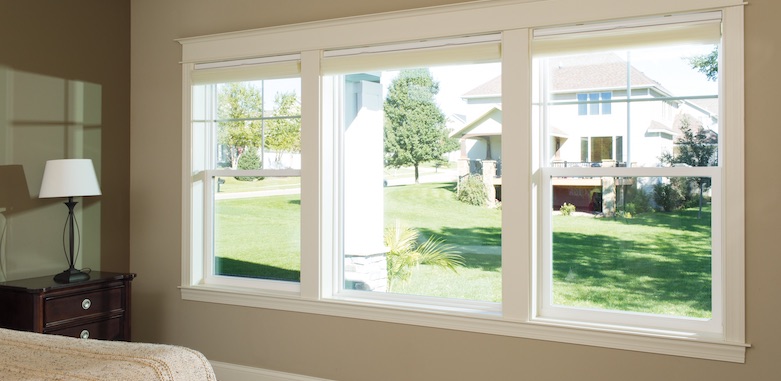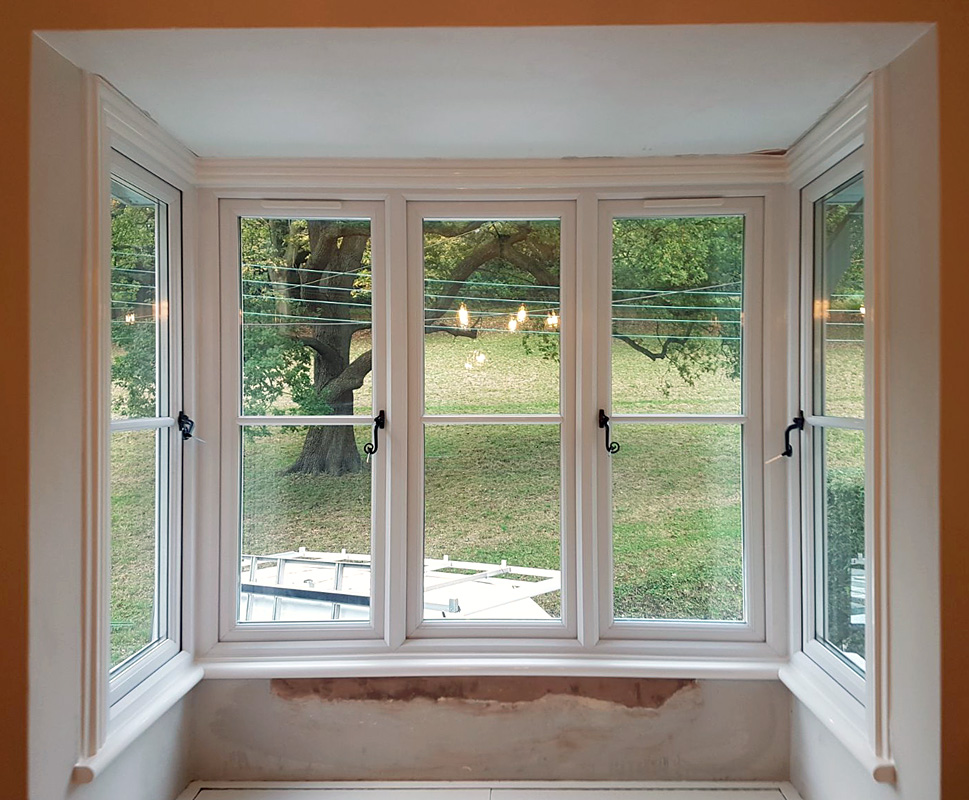When selecting Grapevine Siding & Window Replacement for noise reduction, it’s essential to look for specific features and characteristics that can effectively block or reduce outdoor noise and create a quieter indoor environment. Noise reduction is particularly important if you live in a noisy neighborhood, near busy roads, or close to sources of loud disturbances.

In this comprehensive guide, we’ll explore the key features to consider when choosing windows for noise reduction.
1. Sound Transmission Class (STC) Rating
The Sound Transmission Class (STC) rating is a critical metric to assess a window’s noise reduction capabilities. It measures the window’s ability to reduce sound transmission from outside to inside. A higher STC rating indicates better noise reduction. Look for windows with an STC rating of 30 or higher for noticeable noise reduction benefits.
2. Window Type and Style
The type and style of windows you choose can impact their noise reduction capabilities. Consider the following window types:
- Double-Pane or Triple-Pane Windows: Double-pane windows consist of two layers of glass separated by an insulating spacer, while triple-pane windows have three layers. These extra layers provide a barrier that reduces sound transmission compared to single-pane windows.
- Casement Windows: Casement windows, when closed and properly sealed, offer excellent noise reduction due to their tight seal. They are hinged on the side and close flush against the frame.
- Fixed or Picture Windows: Fixed or picture windows do not open and provide a continuous barrier against noise. They are effective for reducing sound transmission.
- Laminated Glass Windows: Laminated glass consists of a layer of transparent plastic between two layers of glass. This design not only improves security but also offers excellent noise reduction by damping sound vibrations.
3. Glass Thickness
The thickness of the glass used in the windows can significantly impact noise reduction. Thicker glass provides better insulation against sound transmission. Look for windows with thicker glass panes, especially in double-pane or triple-pane configurations.
4. Gas Fills
Some energy-efficient windows feature insulating gas fills, such as argon or krypton, between the glass panes. These gases enhance thermal performance and can also contribute to noise reduction by providing an additional barrier against sound.
5. Window Frame Material
The window frame material can affect both insulation and noise reduction. Consider the following frame materials:
- Vinyl: Vinyl frames are known for their noise-reducing properties. They offer good insulation and help create a tight seal when closed.
- Fiberglass: Fiberglass frames have similar insulating properties to vinyl and can contribute to noise reduction when properly sealed.
- Wood: Wooden frames can provide reasonable noise reduction, but their effectiveness depends on proper sealing and maintenance.
- Composite: Composite frames, which combine different materials, can offer good noise reduction while providing strength and durability.
- Aluminum: Aluminum frames are less effective at noise reduction compared to other materials. However, some models come with thermal breaks that can improve insulation and noise reduction.
6. Seals and Weatherstripping
High-quality seals and weatherstripping are essential for preventing noise leaks. Ensure that the windows come with effective seals and weatherstripping that create an airtight and soundproof barrier when the windows are closed.
7. Multi-Point Locking Systems
Windows with multi-point locking systems provide better compression and sealing when closed. This tight seal helps block outdoor noise from entering your home.
8. Acoustic Insulation Materials
Some window manufacturers offer windows with built-in acoustic insulation materials, such as foam or other sound-damping materials within the window frames. These materials can help absorb and reduce sound vibrations.
9. Professional Installation
Proper installation is crucial for maximizing the noise reduction capabilities of your windows. Ensure that your windows are installed by experienced professionals who can seal gaps and ensure a tight fit.
10. Exterior Noise Barriers
In addition to selecting noise-reducing windows, consider other exterior noise mitigation measures, such as planting trees or installing outdoor noise barriers like fences or walls, to further reduce noise pollution.
11. Local Noise Sources
Identify specific noise sources in your area and select windows that target those frequencies. For example, if you live near a busy road, windows designed to block traffic noise may be most effective.
12. Testing and Certification
Look for windows that have been tested and certified for noise reduction by reputable organizations or manufacturers. This certification can provide assurance of a window’s noise-reducing capabilities.
13. Visual Appearance
While the primary focus is noise reduction, don’t overlook the visual appearance of the windows. Choose windows that complement your home’s architectural style and aesthetic preferences.
14. Budget Considerations
Balancing your noise reduction goals with your budget is essential. While high-quality noise-reducing windows may have a higher upfront cost, they can provide long-term benefits in terms of comfort and peace of mind.
15. Local Building Codes and Regulations
Check if there are any local building codes or regulations related to noise reduction or window installations. Compliance with these regulations may be required in your area.
16. Professional Consultation
If you’re unsure about which windows to choose for noise reduction, consider consulting with window professionals, acoustic consultants, or contractors who specialize in soundproofing. They can provide expert guidance and recommendations based on your specific needs and circumstances.
Conclusion
Choosing Grapevine Siding & Window Replacement for noise reduction involves considering various features and characteristics that can effectively block or reduce outdoor noise. By focusing on factors such as STC ratings, window type, glass thickness, frame material, seals, and professional installation, you can create a quieter and more comfortable living environment. Additionally, considering your budget and seeking professional advice can help you make informed decisions that align with your noise reduction goals.
Grapevine Siding & Window Replacement
2140 Hall – Johnson Rd #102, Grapevine, TX 76051, United States
1-817-508-9754

